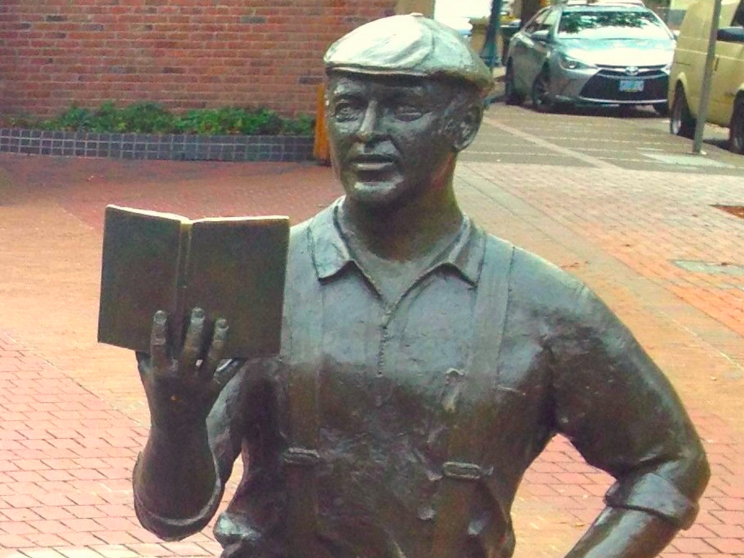How a bad story can cripple the economy

The economy doesn’t just happen. You have to actually do stuff for the economy to work. As such, the willingness to do stuff is just as important as the ability to do stuff.
Consumers must buy expensive steak dinners just like they buy toilet paper. Businesses must pay for their fancy renovations just like they pay for licenses to use Microsoft Word. Governments must build that new bridge just like they restore that hurricane-torn public park. Add all of this up, and you get approximately $18 trillion worth of economic activity in the US a year.
All of the wealth in the world does your economy no good if sentiment is so sour and uncertainty is so high that none of that wealth is put to work.
In a new piece for Project Syndicate, economist Robert Shiller examines the sources of uncertainty that may cause folks in the economy to hold off on their purchases.
“Stories really do affect perceived economic uncertainty”
Shiller begins by saying: “Economic slowdowns can often be characterized as periods of hesitation.”
Hesitation has the consequence of slowing down a growing economy, which can have the unfortunate consequence of feeding back into more hesitation.
But what is the source of hesitation?
Shiller argues one possible source may be uncertainty about economic policy, which seems reasonable considering things like taxes and regulation are a critical part of capital budgeting plans by businesses. Furthermore, the work of Baker, Bloom and Davis and their Economic Policy Uncertainty (EPU) indices have made this correlation observable.
As for cause and effect? From Shiller: “But do contractions cause uncertainty, they ask, or does uncertainty cause contractions? Given that we know that people are highly reactive to each other, the causality most likely runs both ways, in a feedback loop.”
There remains the question of what triggered any of that feedback loop. Shiller goes all the way back to the Great Depression to advance an explanation. From his piece (emphasis ours):
“As for the Great Depression, one wonders if the high degree of EPU was linked to social trends after the excesses of the 1920s, fueling fear of Communism and, in the United States, of the New Deal. One wonders if fear of fascist regimes, and of a coming war, prolonged the depression after Hitler came to power in 1933. The attention devoted to Johannes Steele’s 1934 book The Second World War, which predicted that eponymous event, indicates that fear of war must have been talked about enough to underpin some hesitation. To people who lived through World War I, the thought of a sequel must have seemed nightmarish.
“Of course, whether the Great Depression was really prolonged by these stories or ideas cannot be proved. How do we know which stories were affecting people’s thinking? On the other hand, we can be fairly certain that some of these stories really do affect perceived economic uncertainty.”
Perception can be a powerful influence on behavior, regardless of whether it contradicts reality. And this in turn affects our willingness to do stuff, despite our ability.
All of this is important as we ingest stories about the economy and policy. The economy may in reality be in great shape. But if you read or hear repeatedly that the economy is not great, then the resulting faulty perception could have the consequence of becoming a self-fulfilling prophecy.
Read Shiller’s whole piece at Project Syndicate.
–
Sam Ro is managing editor at Yahoo Finance.
Read more:
How history’s most successful investors think about wild market swings
Here’s the irony of trying to predict the next stock market crash
A single word explains why financial markets everywhere are nosediving
Merrill Lynch chief economist nails the truth about risk in a perfect 3-word sentence
